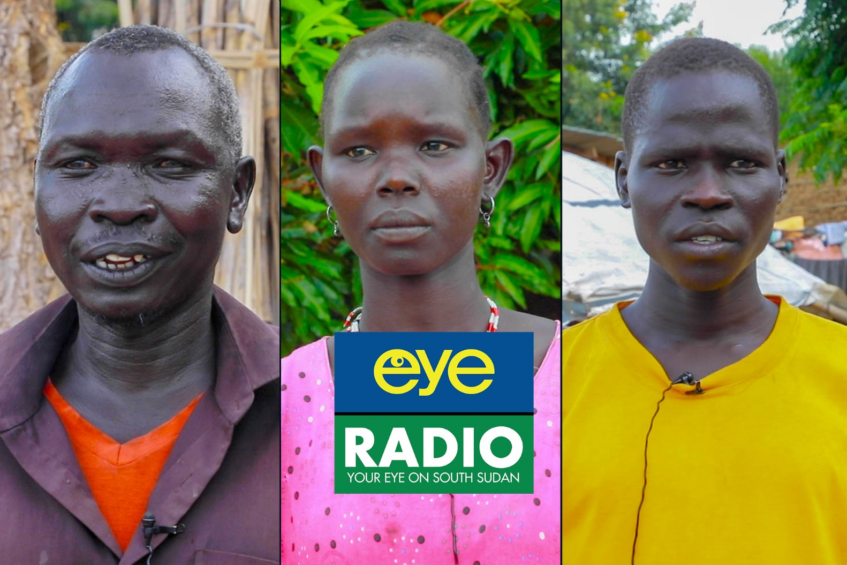You are here: Home | Economy | Humanitarian | News | Hunger-stricken people from EES resort to quarry work in Juba

Some members of the displaced community from Eastern Equatoria due to hunger who spoke to Eye Radio says they decided to woprk at quarry in Jebel Kujur in Juba to make ends meet - Credit: Eye Radio/Moses Awan
Midan Dudu should be working at her farm in her home village in Eastern Equatoria State. However, Dudu, one of the women among many displaced people from Lopit in Eastern Equatoria State due to poor harvest this year, has been pushed by hunger in her village to quarries, where she eked out a living crushing stone.
Dudu started working at the quarries a few days after arriving in Juba from her village in Eastern Equatoria after her drought hit her village.
Last week, the Paramount Chief of the Lopit Community reported starvation forced dozens of locals to leave Arilo, Longiro, and Imehejek Payams and come to Juba in search of food.
Some of them who spoke to Eye Radio are sheltering on the foot of the Jebel mountain
According to them, they walked all the way to Juba from Eastern Equatorial to Juba.
The hunger-stricken locals say since their arrival, they have not received any support, forcing some of them to query stones for survival.
Midan Dudu, a 30-year-old woman from Tennet Community in Eastern Equatoria is one of those communities who fled severe hunger to Juba from some Payams in Eastern Equatoria State.
She called for humanitarian assistance.
“We came from the village because of hunger there is no rain so we decided to come to Juba,” said Dudu.
“We did not have money to hire a car so we walked from the village to Juba now I break stones and sell them to feed my children,” she said.
“If there is assistance, we need food so that it helps the children,” she added.
James Alberto from the Lopit community in Eastern Equatoria is one of those young men who deserted his village in Eastern Equatoria due to hunger.
He says he used to farm huge chang of land but the drought forced him to move to town to work at a quarry to make ends meet.
“I came from the village to Juba because of drought which caused hunger in the village I farmed a big land but the sun burned the crops if there was no drought,” said Alberto.
“I would have not come to Juba because in the villages there are no diseases affecting children so I call for shelter and food to be provided so that these children do not get the disease,” he said.
Micheal Feliciano is another young man from Tennet Community who left his village for a greener posture in Juba.
“As you have seen these people are really hardworking but it is the lack of rain that affected them and forced them to come here there are many others on the way coming to Jub,” Feliciano said.
“The children are really suffering so I call on the government to provide food assistance to those in Juba and the locals in the villages so that they do not all come and abandon the villages,” he said.
Support Eye Radio, the first independent radio broadcaster of news, information & entertainment in South Sudan.
Make a monthly or a one off contribution.
Copyright 2024. All rights reserved. Eye Radio is a product of Eye Media Limited.